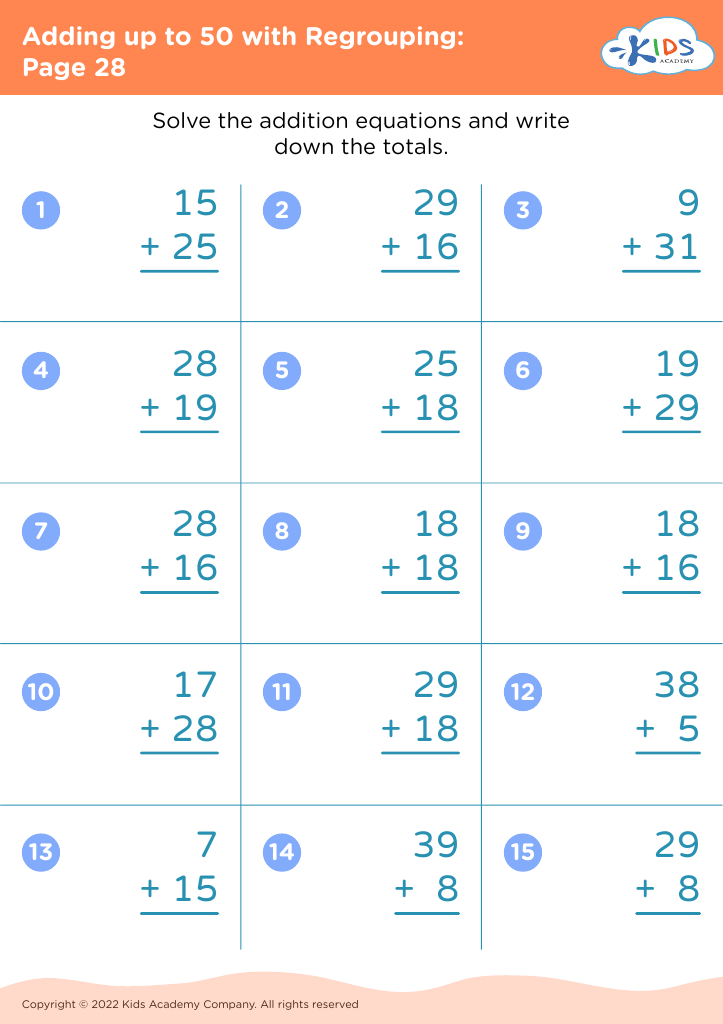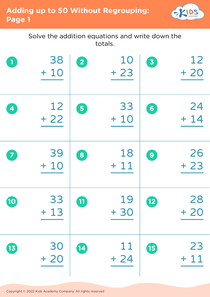Addition skills Adding up to 50 with Regrouping Worksheets for Ages 4-7
3 filtered results
-
From - To
Boost your child's addition skills with our engaging "Adding Up to 50 with Regrouping Worksheets" designed specifically for ages 4-7. These worksheets offer a fun and interactive way for young learners to master the concept of addition while incorporating regrouping techniques. Each activity encourages kids to practice solving problems in a supportive and colorful environment, enhancing their confidence in math. With step-by-step guidance and varied exercises, children will develop essential skills needed for rounding and adding larger numbers. Perfect for home or classroom use, our worksheets help ensure that learning addition is rewarding and enjoyable. Start your child’s math journey today!
Parents and teachers should prioritize addition skills, specifically adding up to 50 with regrouping, for children aged 4-7 because these foundational math concepts serve as building blocks for higher math skills and critical thinking. Mastering this skill equips young learners with the ability to handle more complex arithmetic in future grades, ultimately enhancing their overall academic performance.
Regrouping, also known as “carrying,” helps children understand the base-ten number system. Learning how to regroup allows them to conceptualize numbers beyond just counting, fostering better number sense and improving their confidence in math. Furthermore, strong addition skills encourage problem-solving abilities, enabling children to tackle real-life situations that require numerical understanding.
Practicing addition through games and engaging activities also supports cognitive development, helping with fine motor skills and memory retention. By promoting these skills early on, parents and teachers cultivate a positive attitude toward math, reducing anxiety and fear that can accompany the subject later in life. Ultimately, investing time in developing addition skills lays a solid foundation for a lifetime of successful mathematical thinking and educational achievement.

















